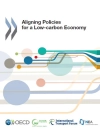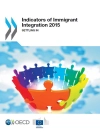ICTs in Developing Countries is a collection of conceptual and empirical works on the adoption and impacts of ICT use in developing societies. Bringing together a wide range of disciplines and contributors, it offers a rich examination of digital divide and ICT for development both in terms of contextual information and disciplinary perspectives.
Spis treści
PART I: CONCEPTUALISING DIGITAL DIVIDE AND ICT FOR DEVELOPMENT
1. A Critical Review Of The ICT For Development Research; Bidit Lal Dey And Faizan Ali.
2 Structurational Explication Of Technology Adoption In ICT4D: A Throwback To Giddens; Sanjay Bhowmick
PART II: DYNAMICS AND KINETICS OF THE ADOPTION, USE AND APPROPRIATION OF ICTS IN DEVELOPING SOCIETIES
3. Impacts Of An Information And Communication Technology (ICT) Implementation On Regulated Financial Services: A Case Of Swaziland; Hillol Bala, Akshay Bhagwatwar And Moshtaq Ahmed
4. How Young Chinese Consumers Choose Among Different Smartphone Brands: The Importance Of Socio-Cultural And Marketing Factors; Raffaele Filieri
5. Global Tools Enhance Local Exchange Through Community Currency In An Alternate Economy; Liezl Coetzee
6. Appropriation Of Mobile Telephony At The Bottom Of The Pyramid; Bidit Lal Dey And Ben Binsardi
7. Political Microblogging: A Case Study Of Twitter In The 'Shahbag Movement’; Faheem Hussain, Mashiat Mostafa And Zyma Islam
8. Development And Use Of Open Source Software In India; Meera Sarma
PART III: POLICY AND PRACTITIONER IMPLICATIONS
9. Effects Of ICT Development On Economic Growth In Emerging Asian Countries; Anupam Das, Syeed Khan And Murshed Chowdhury
10. Digital Divide, Digital Ethics And E-Government; Subhajit Basu
11. Enabling Better Port Governance In Developing Countries: The Role Of Information Technology; M. Karim Sorour And Loay Abdul-Mageed
Index
O autorze
Bidit Dey is Lecturer in Marketing at Brunel Business School, Brunel University, London. His research interests revolve around the adoption and use of technologies particularly in emerging economies. He has been actively involved in a number of training programmes and consultancy projects. He is a fellow of the Higher Education Academy and a member of both the British Academy of Management and the Academy of Marketing.
Karim Sorour is Senior Lecturer in Accounting and Financial Management and the Ph D programme leader at the Faculty of Business & Law, Northumbria University, UK. He has more than 13 years’ experience in the fields of consultancy, research and executive training. His research interests include corporate governance, corporate social responsibility and management accounting with emphasis on developing countries. He is a member of the Risk, Responsibility, Ethics and Governance research Interest group at Newcastle business school and a certified member of the Institute of Management Accountants (USA). Karim is an editorial board member of the
Journal of Economic and Administrative Sciences (JEAS) and
Cogent Business and Management Journal. Recently, he was elected as a steering committee member of the BAFA- Accounting & Finance in Emerging Economies (AFEE) research interest group.
Raffaele Filieri is Senior Lecturer in the Marketing Subject Group at Newcastle Business School, Northumbria University, UK. His main research interests include social media, e-word of mouth, technology adoption and continuance intention, online co-creation and innovation, and knowledge management. Raffaele has published over 40 articles in books, conferences and international peer reviewed journals such as
Journal of Business Research, Tourism Management, Industrial Marketing Management, Journal of Travel Research, Marketing Intelligence & Planning, and Journal of Business Strategy.
Credit Line for image:












